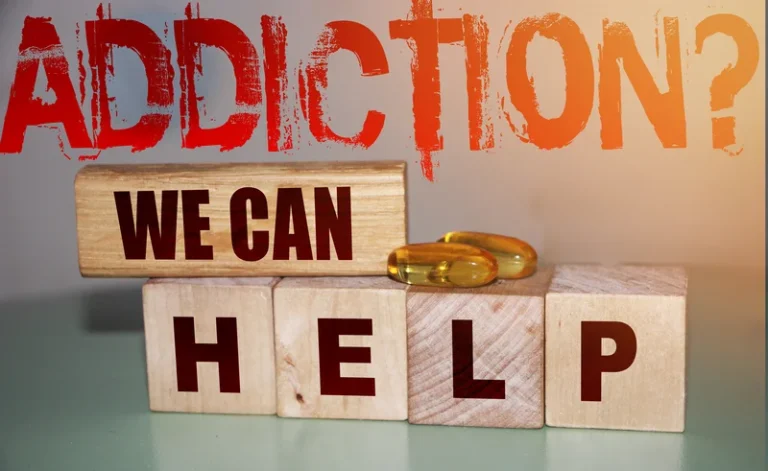
Now, your new future is a blank slate, and you can decide who and what you want to be, accomplish in life, but you must make that decision and carry it out. After spending an amount of time in treatment, the transition process of rebuilding your life after addiction can be challenging and will require several steps. Life after addiction can be a transformative journey filled with both opportunities and challenges. Approximately 75% of individuals seeking recovery from addiction find success, transitioning back to responsibilities like work and family, while also revisiting hobbies and interests.

Importance of nutrition and exercise
In being drug-free, you have the freedom to follow your convictions and explore these questions. Having religious beliefs or a belief in something beyond scientific explanation is not necessary. You can think of this spiritual version of you as living rebuilding your life after addiction in the prefrontal cortex, or you can think of it as being a spiritual part of you that transcends the physical world.
The Benefits of Volunteering in Addiction Recovery
- This blog post will explore practical strategies to help you stay on track, from establishing healthy routines to building a strong support system.
- But over time, it’s a great idea to allow your social circles to grow again.
- Share your experiences openly when you feel ready, and remember that your loved ones may need time to heal, too.
- Discover four triggers for relapse in recovery and learn how to navigate the path to lasting sobriety.
Utilizing resources like SAMHSA’s National Helpline can provide vital support and guidance while individuals navigate the ongoing journey of recovery. This 24/7 confidential service offers treatment referrals and connects users with trained specialists who can guide them toward appropriate resources. Individuals must recognize that their past behaviors often originated from a place of illness rather than moral failure. Services like SAMHSA’s National Helpline can connect you with vital information and local treatment facilities.

How do I start rebuilding my life after addiction?

While challenges still exist, recovery gives you the opportunity to rebuild your mind, body, and relationships. Through structure, support, and ongoing treatment, you create routines that lead to lasting change and reduce the risk of relapse over time. Money problems are one of the most important factors in early recovery—and one of the most overlooked. After drug or alcohol addiction, rebuilding your financial life Sober living house may feel overwhelming, but it’s a critical step toward long-term success. Restoring financial stability brings freedom, confidence, and clarity that supports a more fulfilling future. Whether you’re healing from years of using drugs or stepping into your first sober year, this is your opportunity to build a new life worth staying clean for.
- Individuals often find that substance use masks their identity, leading to disconnection from passions, values, and relationships.
- SAMHSA’s definition of recovery emphasizes the importance of meaningful activities, such as employment or hobbies, in the recovery process.
- Groups like Narcotics Anonymous (NA) or Alcoholics Anonymous (AA) demonstrate the strength of shared experiences.
- For those interested in exploring this further, searching terms like “self-discovery in recovery” can provide additional insights and supportive resources.
- Trust, once broken, can take time, patience, and consistent effort to rebuild.
- Drugs and alcohol rewire the brain in ways that make quitting difficult.
- This mindset fosters positivity, resilience, and hope—all vital for emotional healing and long-term recovery.
- Engaging in ongoing therapy or personal counseling can help address underlying emotional or mental health issues that might lead to cravings.
- Individuals in recovery can rediscover joy and fulfillment through activities that excite them.
When you’ve taken the time to make amends and discuss the expectations that your friends and family have of you, it’s time to follow through on your promises. Chances are that, as an addict, you weren’t known for your reliability, and this is the perfect time for you to change people’s perceptions of you. For example, if you became an addict during your teenage years, but you’re now sober in your late 20’s — things are going to be very different. It’s important to realize that reintegrating into everyday life isn’t an immediate https://ecosoberhouse.com/article/why-we-have-a-fear-of-being-sober-5-fears-about-it/ thing. Too many recovering addicts think that they can walk back out into the world and resume regular life with no problems at all.
The Importance of Addressing Negative Self-Talk in Recovery
There might be people in your life who encourages substance use and get you addicted. The first thing you should do during early recovery with us is to cut such people out of your life. These people could be guilt trippers, or jealous people and might try to control your life again. Moreover, they could be enablers, and try to get you back on your substance use disorder to try and make yourself feel better. There is no point in keeping relationships that perpetuate your addiction.
- It’s vital to allow the recovering individual to open up when ready, ensuring that the dialogue about their journey is constructive and not pressured.
- Over time, being stuck in the cycle of addiction can do further damage to one’s self-esteem and confidence in their ability to overcome challenges, making recovery more difficult.
- When you wake up in the morning, remind yourself that you are on a positive new journey.
- If you or a loved one are struggling with substance abuse, contact us or call us today to learn more about our programs.
Furthermore, supporting open communication in relationships may create a forgiving environment conducive to rebuilding trust. Avoiding known triggers is crucial; this can mean steering clear of social settings, environments, or people that previously contributed to substance use. Engaging in ongoing therapy or personal counseling can help address underlying emotional or mental health issues that might lead to cravings. Practical tips for preventing relapse include building a strong, dependable support system that encourages accountability. Developing healthy daily routines—such as consistent exercise, nutritious eating, and sufficient sleep—creates stability and serves as a foundation for sobriety.










